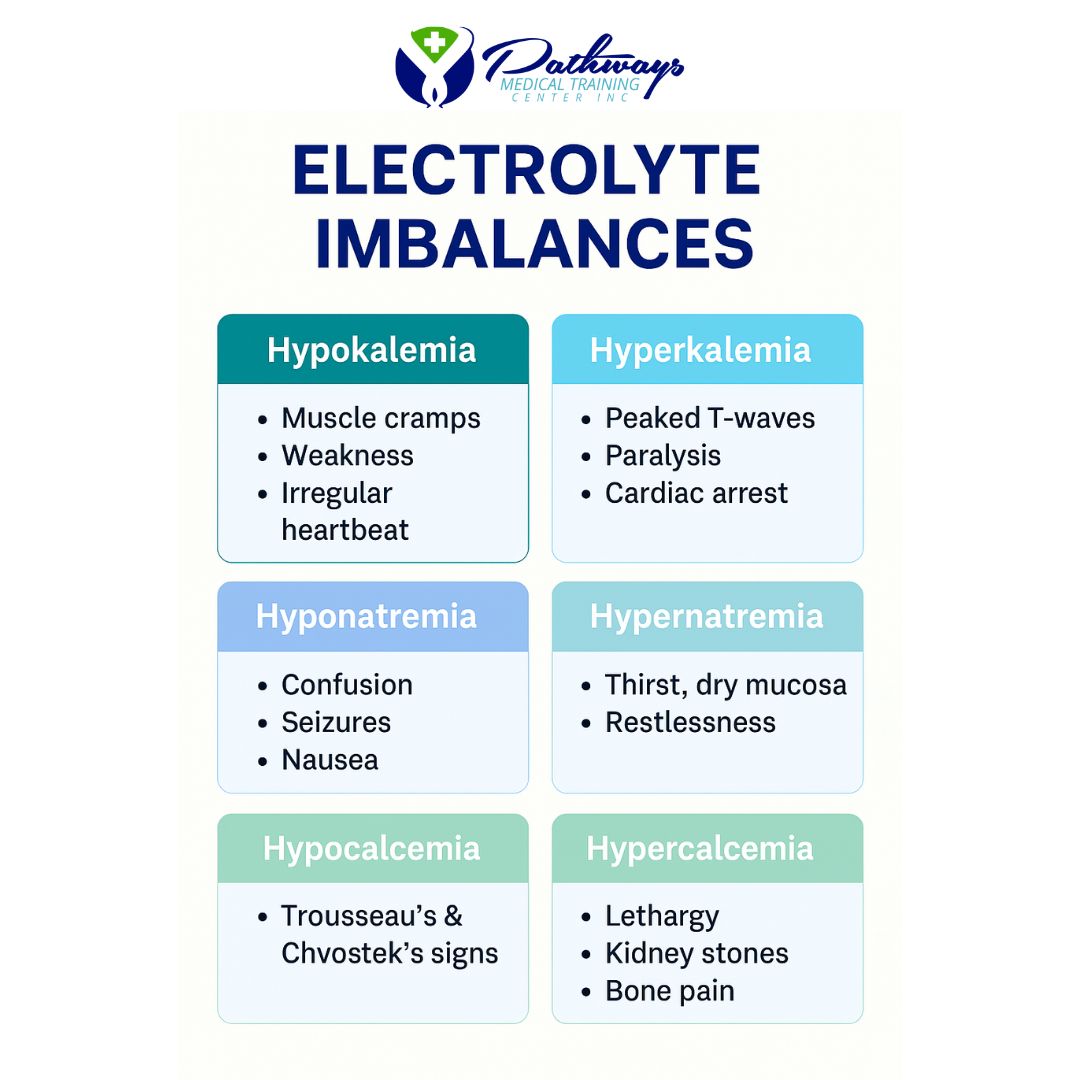The Power of Active Recall: The Best Study Technique for NCLEX
When it comes to preparing for the NCLEX, not all study methods are created equal. Some students spend hours passively rereading notes and textbooks, only to find they can’t recall the information when it counts. If you want to maximize your study efficiency and truly lock in critical nursing concepts, there’s one method you must master: active recall. In this blog, we’ll dive into why active recall is the most powerful study technique for NCLEX success, and how you can start using it today. What Is Active Recall? Active recall is a learning technique that forces your brain to retrieve …
Mastering Electrolyte Imbalance – A Must-Know NCLEX Topic for Every Nursing Student
When preparing for the NCLEX, electrolyte imbalances are one of the most tested topics—and for good reason. Electrolytes like sodium, potassium, calcium, and magnesium play critical roles in nerve conduction, muscle function, hydration, and acid-base balance. Even small fluctuations can lead to life-threatening complications. In this blog post, we’ll explore the most common electrolyte imbalances, how to identify them, and what interventions every nurse should know. Whether you’re reviewing for the NCLEX or brushing up your clinical skills, this breakdown will give you the edge. 1. Hyponatremia (Low Sodium) Normal Range: 135–145 mEq/LCauses: Signs & Symptoms: Nursing Interventions: 2. Hypernatremia …
How to Identify and Eliminate Your Weakest NCLEX Subjects
Passing the NCLEX isn’t just about studying hard—it’s about studying smart. That means focusing on your weakest areas, not just the ones you like or find easy. Many students make the mistake of going over topics they already know, avoiding the tough ones out of frustration or fear. But to truly get NCLEX-ready, you must identify, confront, and master your weak spots. Here’s a step-by-step strategy to help you do just that. Step 1: Take a Full NCLEX Diagnostic Practice Test The first step to identifying your weakest subjects is data. A full-length NCLEX practice exam provides a snapshot of …
Hyperkalemia (High Potassium > 5.0 mEq/L): What Every NCLEX Test-Taker Should Know
Electrolyte imbalances are a hot topic on the NCLEX, and hyperkalemia is one of the most critical ones to understand. Why? Because high potassium levels can lead to life-threatening cardiac issues, and nurses are often on the front line of recognizing and responding to them. In this post, we’ll break down hyperkalemia for NCLEX prep—covering causes, signs and symptoms, nursing priorities, treatment, and key tips for answering related exam questions. What Is Hyperkalemia? Hyperkalemia is a condition where the serum potassium level is above 5.0 mEq/L. Potassium is essential for nerve conduction, muscle contraction, and—most importantly—maintaining proper cardiac rhythm. When …







